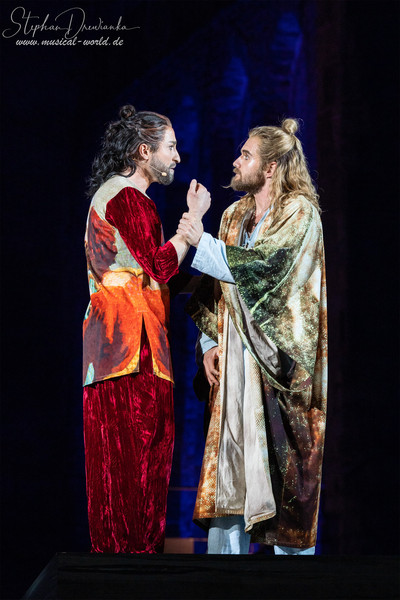The Enduring Legacy of Jesus Christ Superstar

Introduction
Since its debut in 1970, Jesus Christ Superstar has emerged as a significant cultural and artistic phenomenon. Created by Andrew Lloyd Webber and Tim Rice, this rock opera presents a unique retelling of the final days of Jesus Christ, blending traditional biblical narratives with contemporary music and themes. As the world continues to grapple with issues of faith, identity, and societal change, the relevance and influence of this musical have only grown, making it a topic worthy of discussion.
Overview and Key Events
Originally commissioned for a concept album, Jesus Christ Superstar revolutionised the musical theatre landscape by introducing rock and pop influences to a genre historically dominated by classical elements. Its Broadway debut in 1971 followed its success in the UK, capturing both critical acclaim and audience adoration.
The storyline focuses on the relationship between Jesus and Judas Iscariot, providing a human perspective on the events leading to the crucifixion. The musical features iconic songs such as “I Don’t Know How to Love Him” and “Superstar,” which not only captivated audiences’ ears but also challenged traditional portrayals of biblical figures.
Recent productions, including the 2013 NBC Live production featuring John Legend and Sara Bareilles, demonstrated the show’s lasting appeal and adaptability for modern interpretations. With its eclectic mix of rock, gospel, and theatrical traditions, Jesus Christ Superstar continues to resonate with new generations.
Current Relevance and Significance
The themes explored in Jesus Christ Superstar remain pertinent in today’s society, where discussions surrounding faith, betrayal, and redemption are ever-evolving. Its portrayal of Judas as a complex character grappling with the implications of his choices opens dialogues about morality and the nature of belief, particularly amidst contemporary socio-political turbulence.
In recent months, various theatre companies worldwide have revived the rock opera amid growing interest as audiences seek both nostalgic and fresh theatrical experiences. Moreover, the musical’s messages about leadership and the manipulation of ideals resonate strongly with current issues concerning political and religious leadership, making it exceptionally relevant.
Conclusion
Jesus Christ Superstar stands as a testament to the power of musical theatre to transcend time and connect with audiences on multiple levels. As cities worldwide prepare for upcoming productions and modern adaptations, the musical’s themes of love, sacrifice, and human struggle will undoubtedly continue to captivate and inspire. With its rich narrative and profound questions about faith and morality, Jesus Christ Superstar not only entertains but also invites audiences to reflect on their own beliefs and experiences, solidifying its place in the annals of theatrical history.








